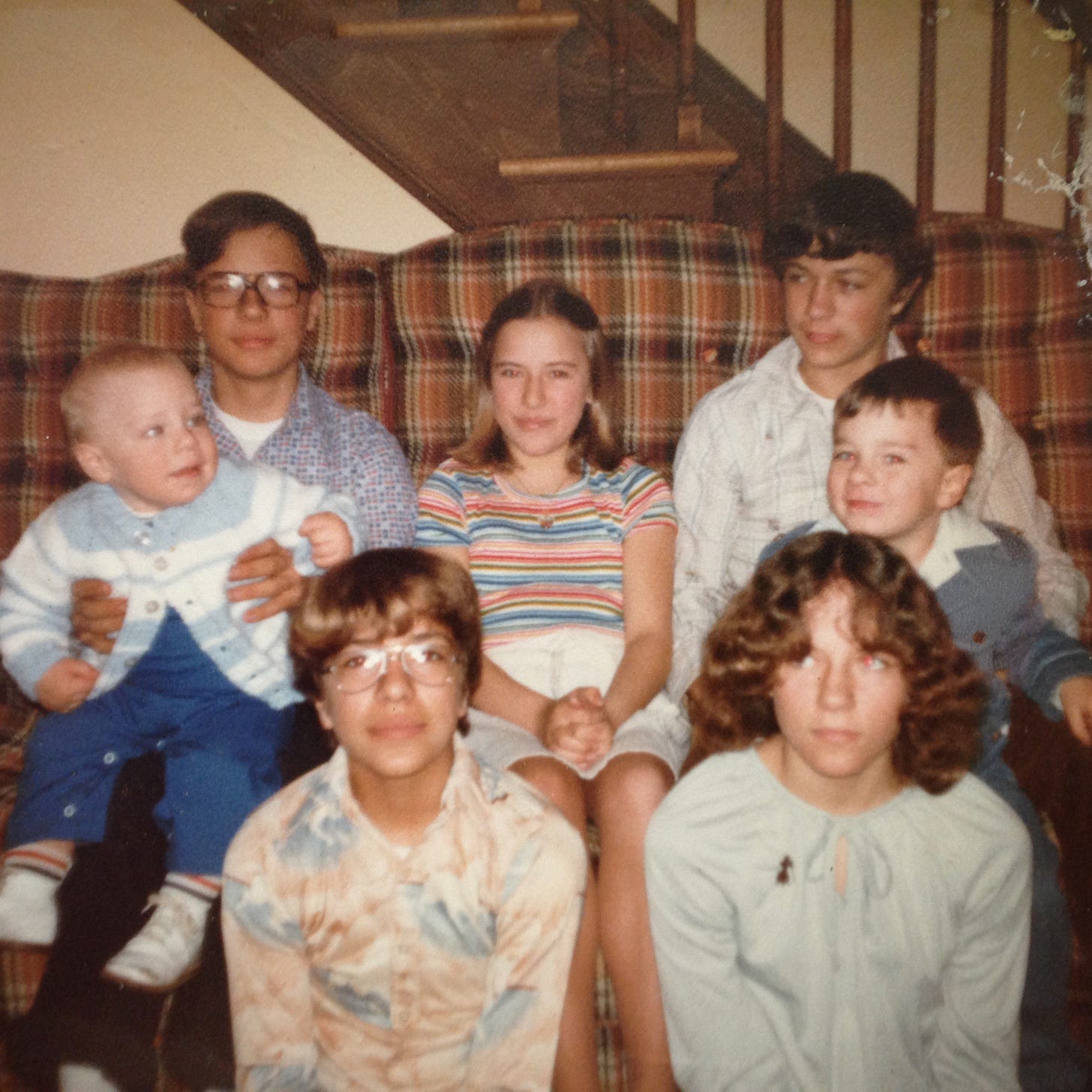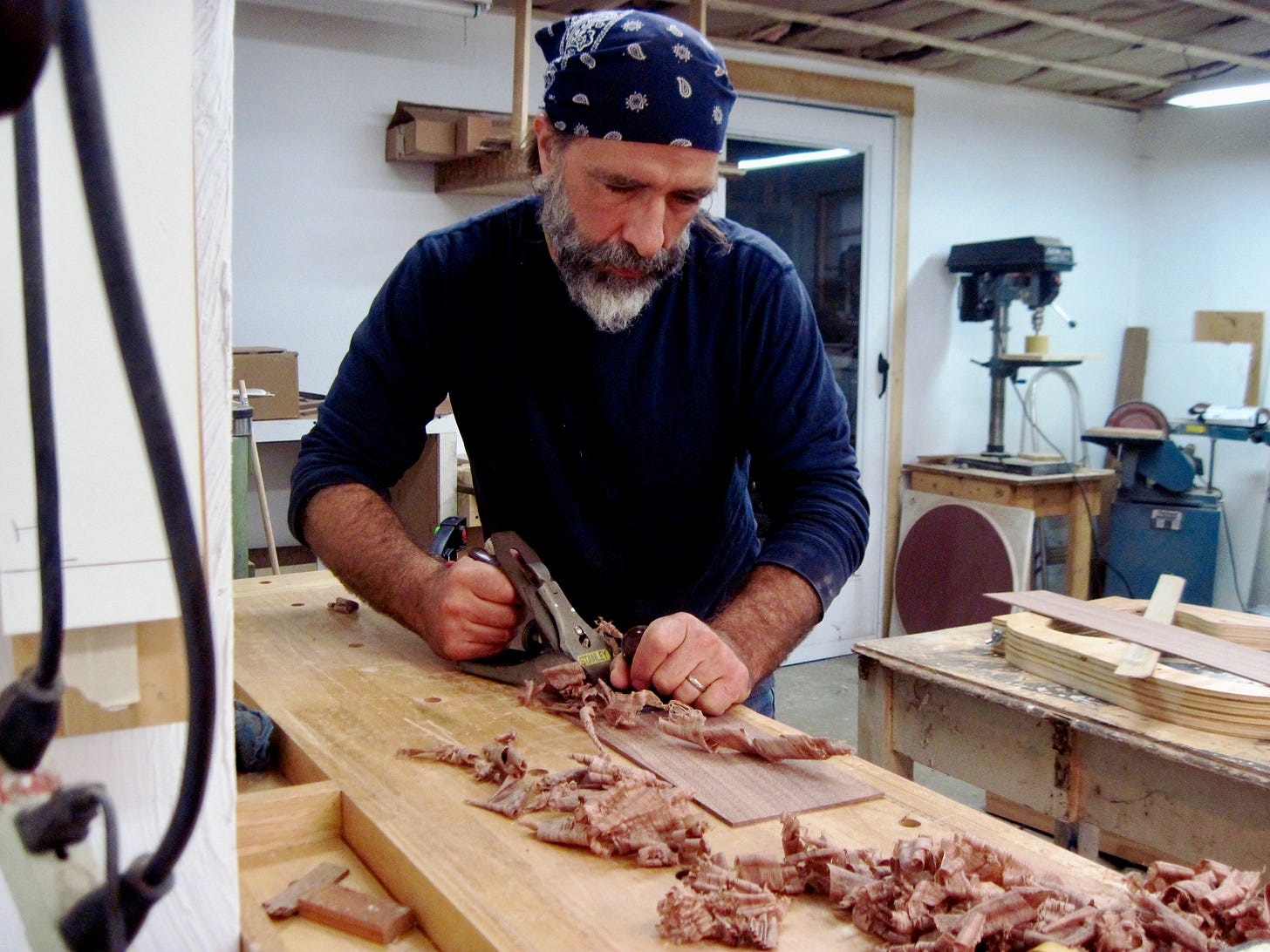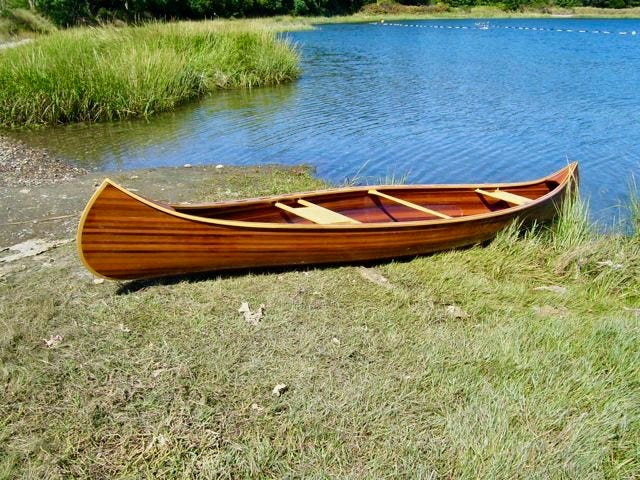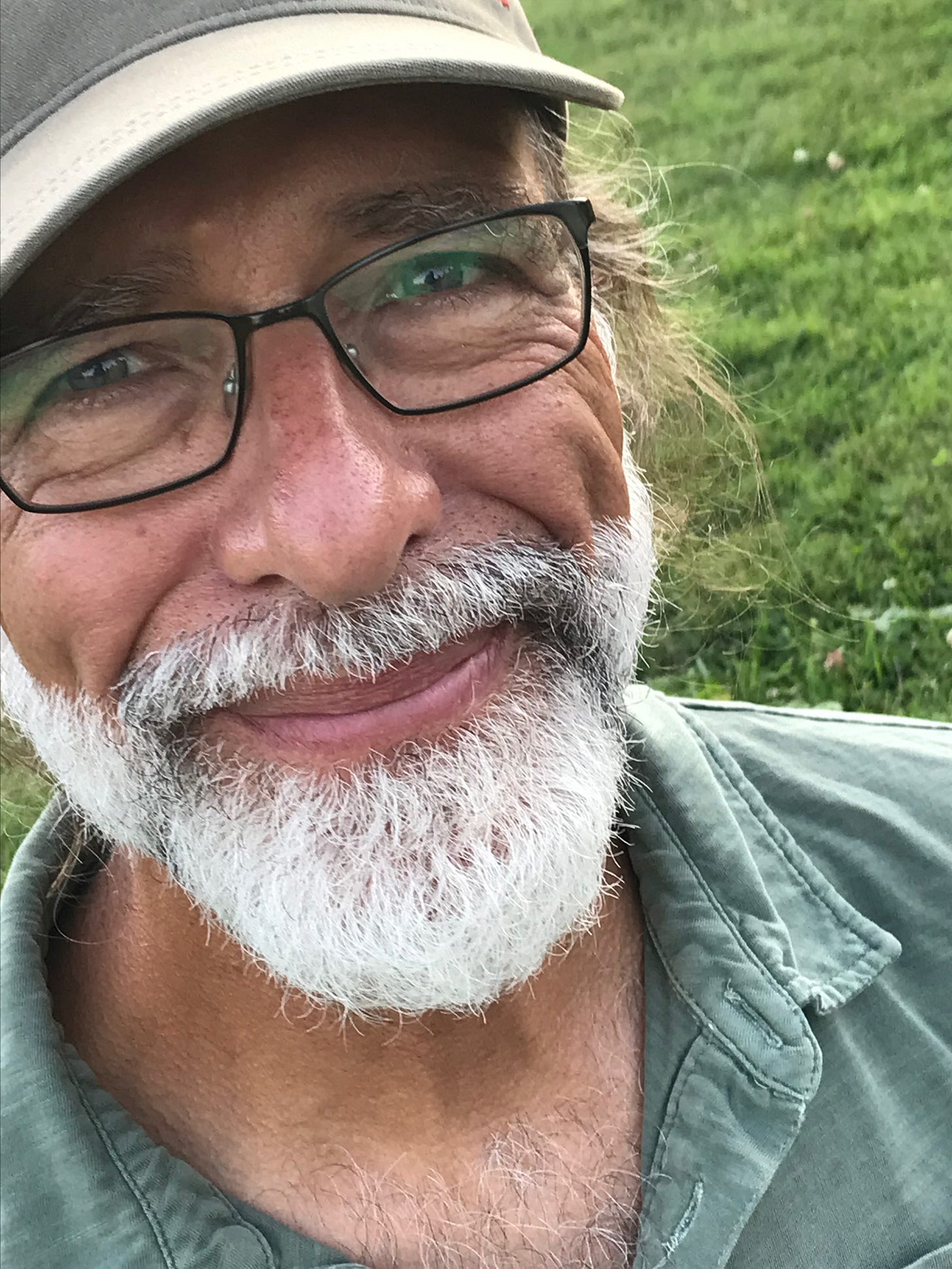Meet the Author of 'Shy Guy Meets the Buddha'
And Learn How this Essay Series Got its Name
Don is doing good work. Some days he will burst into tears instead of asking for help. Other than this, he has adjusted well to school. —Mrs. Thelma Puechl, Edmund Bennet School, 1st grade progress reportDon is doing fine work. He is doing “A” work in spelling. He still will burst into tears if he thinks something will be difficult, instead of asking questions or for help. —ibid, final progress report
Hi, I’m Don Boivin, author of the Substack newsletter, Shy Guy Meets the Buddha: Reflections on Work, Love, and Nature. After publishing an essay a week for the past seven months, I think it’s high time I officially introduced myself. My essays are mostly autobiographical, so readers may already know something about me, but this will be my mini-bio, and perhaps my “hero post.”
First, how to pronounce my name. It occurs to me that most of you are probably reading it as boy-vin. My surname comes from the French, boire—to drink, and vin—wine. (Yes, I do like wine :-)) My father’s grandparents immigrated to Southeastern Massachusetts from Quebec, Canada in the late 1800s. Americanizing our name, the family decided to pronounce it with a bō (rhymes with slow). Sorry, I should have told you this sooner. 🙂
I’ve mentioned or alluded to my early shyness a few times in my newsletter (for example: “The Ginger Flames of Youthful Love”). In my late fifties now, that shyness lingers—as introversion, as a quiet demeaner (especially if I don’t know you well), and as anxiety when it comes to making phones calls or meeting many new people at once. I also shy away from personal interviews, live recordings, and podcasts. And job interviews—forget about it! I’ve chosen careers that don’t require them.
But the thing is, I still have something to say. I have thoughts, views, experiences to share. I’ve always borne a tremendous desire to lead a meaningful and fulfilling life, but lacked the modeling and guidance I needed. I’ve made mistakes. I’ve acted out of ignorance, desperation, and loneliness. I’ve been a spiritual seeker, but I’ve found “truth” to be elusive and tricky. I’ve spent many years immersed in and thinking about work, love, and nature. These experiences and reflections want to be shared!
So, I write.
Here is my compressed bio:
I was born in 1964 and raised in Taunton, Massachusetts, just a little too far from both of my favorite geographical features: the ocean’s edge and the mountains. But, thank goodness, there were plenty of woods to walk in. (Sadly, those woods are mostly developed now.)
I have a twin sister named Donna, with whom I’m very close. My two older brothers are also fraternal twins. After producing four babies in two years, my parents took two years off, then birthed another four, one at a time, for a grand total of eight. Yes, my mother is a hero, a saint, and exhausted. Thankfully, my youngest sister helps take care of her and my father, both in their eighties now.

My father was a construction supervisor in the Boston carpenter’s union. He is the strong silent type. Imagine him standing on a gravel embankment in a white hard hat, directing a crane as it lowers a large gang form into place for the construction of a concrete bridge abutment, then later throwing heavy planks onto the back of a truck alongside the journeymen and apprentices. At home he drinks beer to relax, yells at my siblings and me if we argue at the dinner table, and squeezes my mom too tight when she asks for a hug, triggering a familiar retort: “Why can’t you just be gentle with me for once!” He laughs, and that makes us kids laugh, though mom is red in the face. Dad may get mad at us a lot, but I’ve never seen him mad at my mother.
I started reading for escape in third grade and never stopped. (Here is an interview with
of Beyond the Bookshelf where I discuss my reading life). I was the first in my family to try college—neither of my parents finished high school—though I dropped out again and again, confused about my purpose and insecure about whether I was college material.The Army was the first really dumb mistake I made. I wrote about this in “Walking Away.” My second life-altering mistake was marrying the wrong woman. It wasn’t all bad, of course, especially in the beginning. Read more about this in “Is Love Just a Fairy Tale?”
I have two grown children, a girl and a boy, who are thankfully still speaking to me considering the caustic circumstances of the divorce and subsequent battle for visitation rights. Aspects of those circumstances have been alluded to in several of my autobiographical essays (“A Lesson in Lovingkindness”)
I’ve made my living as a carpenter, finding myself naturally talented with tools and handwork, but also following the least challenging route for me. I did finally earn my bachelor’s in English, and tried teaching, but I think it was a little too late for a new career to take effect—or maybe teaching just wasn’t for me. I continued to fall back on my hard-earned skill as a craftsman, and do so still, though my back and knees are begging me to quit.
Meditation is something I had tried periodically for years but never solidified into a regular practice. Then, in February of 2020, hungry for some spiritual food, I picked up a copy of Thich Nhat Hanh’s The Heart of the Buddha’s Teaching in a used book store in Hawaii, where I was vacationing. I buried my nose in that wonderful book, and decided to try meditating again. Jetlag had me up at 5AM anyway, so I meditated on the Kona waterfront each morning as the sun rose. What a beautiful experience to mark a whole new beginning! I have meditated nearly every day since.
Between that and a healthy diet of Buddhist and mindfulness literature, I have found myself able for the most part to finally push aside the veil of ego, or self-view, that has obscured my true nature for so long. Even spiritual seeking can serve as a trick of the conditioned self to reinforce the illusion called me (I am a seeker. I am a good Christian. I have come a long way with my meditation.) The Tibetan Buddhist Chögyam Trungpa calls this “spiritual materialism.”
The truth is actually quite simple, but so hard to see: I am not who I think I am. I just am. Or, more accurately, being is.
I won’t spend a lot of time expounding on that right now, since at least half of my essays hinge on the theme (here are two of my most popular mindfulness-themed essays: “If You’re in the Shower, Be in the Shower” and “Gimme, Gimme, Gimme, I Want Everything I See”). But since the title of my newsletter mentions the Buddha, I think it’s important to tell you that, although I meditate every day and attend a twice-monthly meeting of a local Buddhist Sangha, I am not a Buddhist.
, in his book, Where Are You?, puts it well:The spiritual teacher Adyashanti... said that “The goal of Buddhism is to create Buddhas, not Buddhists. The goal of Christianity is to create Christs, not Christians.” This same sentiment can be applied to other religious paths as well. The goal is not to perpetuate fidelity to the forms and institutions. The goal is transformation.
It’s so refreshing to find words to accompany an impulse you’ve not yet elucidated. The tenets of Buddhism, especially as expounded by so many Western mindfulness teachers, have been enlightening for me, but that does not mean I’m converting to Buddhism or taking up an in-depth study of the various schools and transmissions. I yawn at the thought. I still can’t clarify the difference between Mahayana and Theravada; Zen and vipassana; Thai Forest tradition, Vajrayana, Pure Land; it’s all too much. I know that I lean toward something called insight meditation, perhaps because one of my favorite writers and teachers, Joseph Goldstein, helped found the Insight Meditation Center in Barre, Massachusetts, and because of the insights I gain while meditating. But that could change. The method is not important to me. Ultimate truth is what it is, regardless of what we call it or think about it, or who is pointing the way.
Transformation, waking up, realizing our true nature; that’s what matters.
Back to my bio; I love all kinds of music, including classical; I took up guitar and songwriting in my later thirties; and I am teaching myself piano (very slowly). I have built three guitars and one ukulele (not all of them completed) and a cedar-strip canoe.
I did finally find a loving companion, my life partner Jennifer, and I have written about her twice (here and here). We haven’t solved all the mysteries of the perfect relationship (in other words, we are human, and we still have to negotiate sharing our lives, our time, and our space), but we travel well together; we support and respect each other; and we have an awful lot of fun!
I live on Cape Cod, walk often on wooded trails, as well as the beach. I do a lot of my writing in a newer local coffee shop/book store called Bread and Roses, which is community-oriented, progressive, and LGBTQ+ friendly. It’s right on Main Street in Hyannis and I’ve made some great friends there.
Oh, I should mention that, though I’ve been published in a few smaller magazines, have interned as assistant editor on the Thoreau Society’s The Concord Saunterer, and have kept a journal since high school, writing has never occupied as large a role in my life as it does now, as a Substack publisher. For the first time in my life, I feel that I am truly manifesting my essence. I am a writer and an artist.
A shy artist confronting his Buddha nature—thus the title of this publication.
And I don’t cry any more when I have questions, thank goodness; I just ask.
You are an eternal essence; this is the ancient reason why you are here. To begin to get a glimpse of this essence is to come into harmony with your destiny. John O’Donohue, Anam Cara
BOOKS MENTIONED
—Dan Ehrenkarantz. Where Are You? A Beginner's Guide to Advanced Spirituality. Spinoza Press, 2022 —Joseph Goldstein. The Experience of Insight: A Simple and Direct Guide to Buddhist Meditation. Shambhala, 2020 —Thich Nhat Hanh. The Heart of the Buddha's Teaching. Harmony, 1999 —John O'Donohue. Anam Cara: A Book of Celtic Wisdom. Harper Perennial, 2022 —Chögyam Trungpa. Cutting Through Spiritual Materialism. Shambhala Classics, 2002
Great news! I am now an affiliate at bookshop.org, an organization that supports indie bookstores rather than giving billions of YOUR dollars to giant monopolies. If you navigate to bookshop.org through any book or store link on Shy Guy Meets the Buddha and purchase ANY book, I will earn a small commission and YOU will be helping keep this publication available to everyone (and also helping independent book stores everywhere). Thanks for your help! 🙏
Thank you for reading Shy Guy Meets the Buddha: Reflections on Work, Love, and Nature. If you enjoy these mindfulness-themed biographical essays and would like to show your support, please consider becoming a supporting member for only $5 a month.
Alternatively, a one-time donation will help me continue the hard work behind these creative efforts; “Buy me a coffee”here or by clicking the button below. And don’t forget to like and share; Please take a few moments to show you care. Thank you!









Hey Don, thanks for this intriguing introduction.
You put something into words here that I've been struggling with for a while – the notion of practicing Buddhist meditation, but not being a Buddhist (as in converting to Buddhism). I've taken up Zen and Vipassana around ten years ago, and I do practice insight meditation, mindfulness meditation and sometimes Metta meditation. It's not important to me to label myself a "Buddhist", though the practice has changed my life – and that's all that matters to me. Cheers from Germany, Stephan
Wow, Don! I see a Memoir in the trees of your life and I have the benefit and blessing of having met you F2F, a delightful time in Hyannis last week. You bring up two things for me in this brief bio besides your talent for creative expression in what you have produced and what continues to inspire you. The first is that I don't remember when I came to "I AM" as defining me. It may have been in translating some Hebrew that sowed the seed that has been sprouting ever since. It is in the book of Exodus when God said to Moses, "I am that I am." There's much more to that for another time. The second thing is what Ghandi said: "'I like your Christ, I do not like your Christians. Your Christians are so unlike your Christ." Many who call themselves "Christians" today do not look or sound like they have a clue what that means about loving your neighbor, doing justice, showing mercy, offering peace. You, my friend, are walking the walk. It's a privilege to know you and to receive the gifts of what you share here.